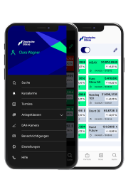Securities and asset classes – the building blocks of the capital market
Securities are securitized property rights. They give you, the investor, the right to participate in earnings, interest, or price developments—and can be divided into different asset classes that vary in terms of return opportunities, risks, and maturities.
The most important asset classes
In addition to the traditional asset classes of equities, bonds, cash, and real estate, there are also alternative investments such as commodities, private equity, and collectibles (e.g., art, classic cars, or wine).
The following asset classes are primarily traded on the Deutsche Börse:
- Company shares (equities)
- Bonds and loans
- Commodities (via derivatives or certificates)
- Foreign exchange (via derivatives or certificates)
- Real estate investments (via funds or listed companies)
How you can invest
- Companies: By purchasing shares, you become a co-owner of a company and benefit from price gains and dividends.
- Bonds: When you buy a bond, you lend your money to a company or the government—usually in exchange for a fixed interest rate and repayment at maturity.
- Commodities: It is virtually impossible to invest directly in oil, gold, or wheat, but you can do so via certificates or funds that track these assets.
- Foreign exchange: Currencies are traded on special markets. In Frankfurt, you can participate in exchange rate developments via certificate-based products.
Asset classes vs. security types
An asset class describes what you are investing in (e.g., stock market, bond market, commodity market).
A security type, also known as a vehicle, describes how you are investing – i.e., in what form your claim is securitized.
A security always represents a right to participation, interest, or repayment.
From paper to digital shares
In the past, securities were actually paper certificates: ownership rights were transferred physically, and in the case of bonds, investors detached the coupons to collect interest. Such tradable securities were called securities, and the actual certificates were called effective pieces.
Today, trading is completely digital. Shares in a company are securitized by a global certificate, while all purchases and sales are recorded electronically and held in a securities account.
From shares to certificates – what you can trade on the Deutsche Börse
Numerous types of securities are available to you on the German Stock Exchange:
- Shares
- Bonds
- Investment funds
- ETFs, ETCs, and ETNs
- Investment certificates
- Leveraged products and warrants
Detailed information on opportunities, risks, and characteristics can be found in the respective sections of this website.
Shares – participation in a company
Shares represent ownership interests in a company. As a shareholder, you provide equity capital, receive voting rights, and are entitled to dividends.
Shares are the best-known form of investment and offer high long-term return opportunities – with corresponding risk.
Around 13,000 shares are tradable on Deutsche Börse, and around 1,000 companies have their home market here.
Bonds – lending money in return for interest
Bonds (also known as debentures) are fixed-income securities. Companies, banks, and governments use them to raise capital. As a buyer, you lend money and receive regular interest payments in return, as well as repayment of the nominal amount at the end of the term.
Around 27,000 bonds are listed in Frankfurt.
Investment funds – investing together
Funds pool the capital of many investors. Depending on their focus, fund managers invest this capital in stocks, bonds, or hybrid forms. By purchasing a fund share, you are participating in a broadly diversified portfolio – ideal for getting started with smaller amounts.
The fund assets are considered special assets and remain protected in the event of the fund company's insolvency.
ETFs, ETCs, and ETNs – exchange-traded alternatives
- ETFs (exchange-traded funds) replicate an index, such as the DAX, on a 1:1 basis. They combine broad diversification with low fees.
- ETCs (exchange-traded commodities) are exchange-traded debt securities that track commodity prices (e.g., gold or oil). They are usually collateralized but are not considered special assets.
- ETNs (exchange-traded notes) track specific market indicators, such as volatility or currency pairs. They are also debt securities, usually with a limited term and without collateral.
Investment certificates – structured investments
Investment certificates combine the return opportunities of an underlying asset (e.g., a stock, index, or commodity) with a specific structure.
This allows bonus, guarantee, or discount strategies to be implemented.
Legally, certificates are debt securities issued by the issuer – this means you have no ownership rights to the underlying asset, but rather a repayment claim against the bank.
Leveraged products and warrants – with risk and potential
Leveraged certificates and warrants are structured products. They enable disproportionate gains – but also losses – depending on the performance of an underlying asset.
Warrants are considered a classic form of derivative securities and are particularly suitable for experienced investors who want to take advantage of short-term market movements.
November 2025 – © Deutsche Börse AG




